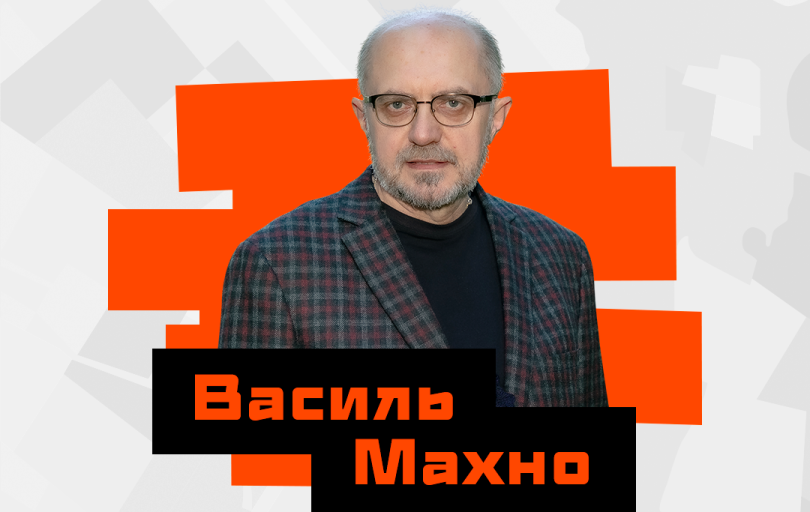From the springs of the earth
I belong to those who witnessed the collapse of the Soviet Union, the Revolution on Granite, and the proclamation of Independence with my own eyes. In contrast, I observed the Orange Revolution and the Revolution of Dignity from New York, speaking at rallies and participating in protests. I wrote poems and essays about these events. I raised my voice. Over the past thirty years, my generation, which now reluctantly receives conscription orders and wonders if we are needed for territorial defense, has experienced a transition from a totalitarian regime to certain forms of initial democracy. I must say that this transition was not easy because we now find ourselves in a part of the historical scenario that involves war. Since February 24, we are all at war, meaning we are all, in a sense, mobilized. Some may argue with me that this is just a writer’s metaphor, as real soldiers are on the front lines. However, I still allow myself to think about the war, the scope of which ranges from the front trenches of the combat zone to every Ukrainian heart.
This insidious war caught us off guard. Partly, we turned away from Moscow and looked to the West, to a different civilization than the „Russian world.“ However, for various reasons – geographical, cultural, family ties, etc. – a significant part of our society remained in the captivity of various „fraternal“ ideas with Russians. The mythology still worked, from the so-called Act of Reunification in the times of Bohdan Khmelnytsky to the „joint struggle of the Soviet people against fascism“ in the „Great Patriotic War.“ This mythology gnawed into the consciousness of several generations of Ukrainians. It seemed that you couldn’t resist it.
Ukrainian reality during the thirty years of independence was far from ideal. Too many things had mixed up in the post-Soviet society, and when I moved to New York, it seemed to me that it could never be untangled. Ukrainian society was marked by various contradictions: the West vs. the East, cultural values vs. historical events, Ukrainian vs. Russian languages, and national vs. Soviet identities. Ukrainian cities showcased a mix of Soviet and modern architecture, Ukrainian politicians were guided by both ideology and corruption, Ukrainian borders were criminally defenseless, and the Ukrainian army was plagued by treachery and embezzlement. The country existed between two mental poles, roughly labeled „Lviv“ and „Donetsk,“ supposedly balanced by Kyiv. Despite this fragmentation, something kept the country from descending into chaos or total dependence on its northern imperial neighbor.
However, something smoldered in this torn country, which did not allow it to sink into complete chaos or dependence on its northern imperial neighbor. What was it? Language? No. Culture? Not entirely. Literature? Not quite. Historical and family memory? Maybe. Political and cultural idealists? Likely. Of course, no society or country is perfect. But there is something that binds together the backbone. Contradictions are the basis of existence, from which a certain compromise or system of social and political agreements is born; in other words, the law under which state and social mechanisms live. One of the biggest problems of oligarchic state formation is the lack of effective, not declared, legal norms. How can we not mention Julia Kristeva with her desperate appeal to post-communist elites about total corruption and their disregard for the principles of democratic societies?
In my opinion, the war and the preceding revolutions on Maidan served an essential function of catharsis and, perhaps, enlightenment. Every generation will find optimists and pessimists, Ukrainophiles and Ukrainophobes, and supporters of left or right ideologies. But the threat of losing not only life but also something that may seem like a metaphysically undefined substance – our homeland and home, which we draw from the sources of the archetypal national memory – has shattered our consciousness. It was the realization of these losses that created our wild resistance. For everyone? Of course not. Don’t the media outlets overflow with daily reports of draft dodgers, corrupt officials, drug dealers, traitors, and spies? What a relief that they are a tiny minority! War is also like an X-ray that illuminates everyone. As the biblical proverb goes, the sun rises on the righteous and the wicked alike, shining equally on heroes and cowards. It shines upon them equally but they walk along different shores.
Every aggressor’s attack is unjustified because, with the first shot, we delve into a time of war. And a time of war is always uncertain – nobody knows how long it will last, how many victims it will claim, or when it will end. Wars begin unexpectedly and end unexpectedly. For me, the important question that I ask myself, and not only today, is this: How can Ukrainian society, which is experiencing and will experience war, build state relations on a new basis? How will the philosophy of the state, law, culture, and language change? How should it change?
It’s easiest to find those responsible for the war. They are known. Of course, they will face trial because avoiding it and total impunity leads to audacity and new wars. Neither Georgia nor Crimea served as a warning to the world that Putin’s empire was ready to start a war in Europe, against Europe and the world. The hardest part will be trying to „reformat“ Ukrainian society to fill it with new content after losses and ruins. This will be the most challenging process because it will last for years.
We reconsider the war every day. What does this mean? It means that the war is one big question for us. We will all have to answer it together. All of us. And where will we draw the strength to answer? From those that flow underground in the depths of our land. There are no others.
Translated by Yulia Lyubka and Kate Tsurkan











